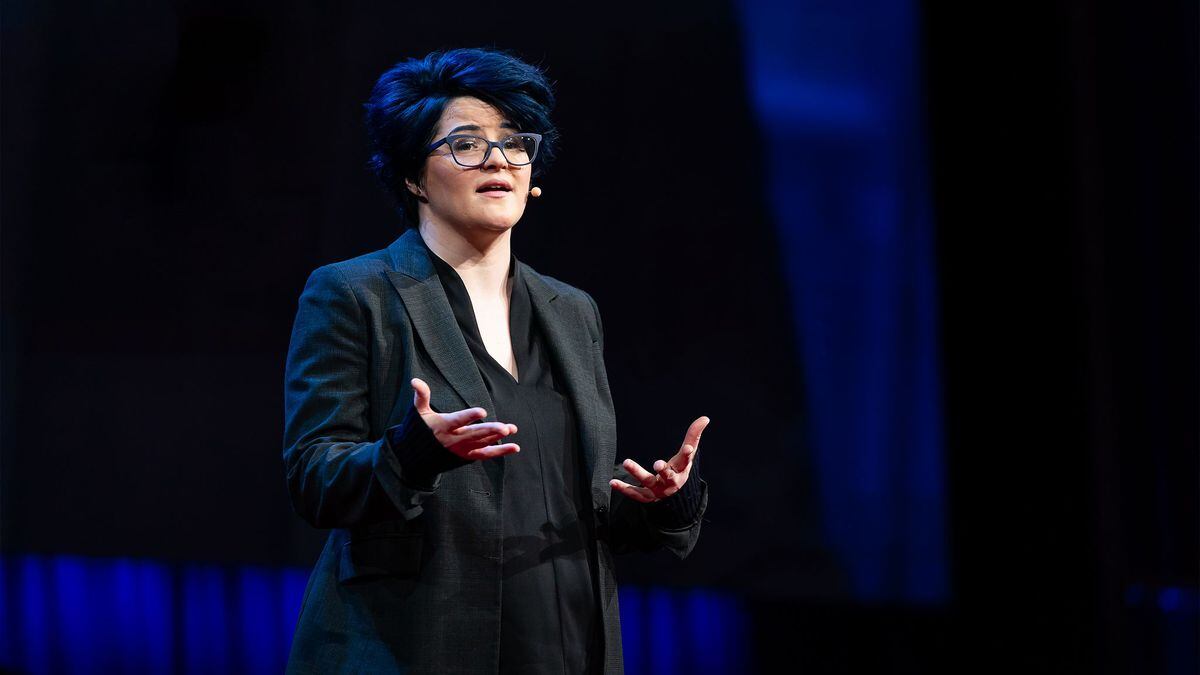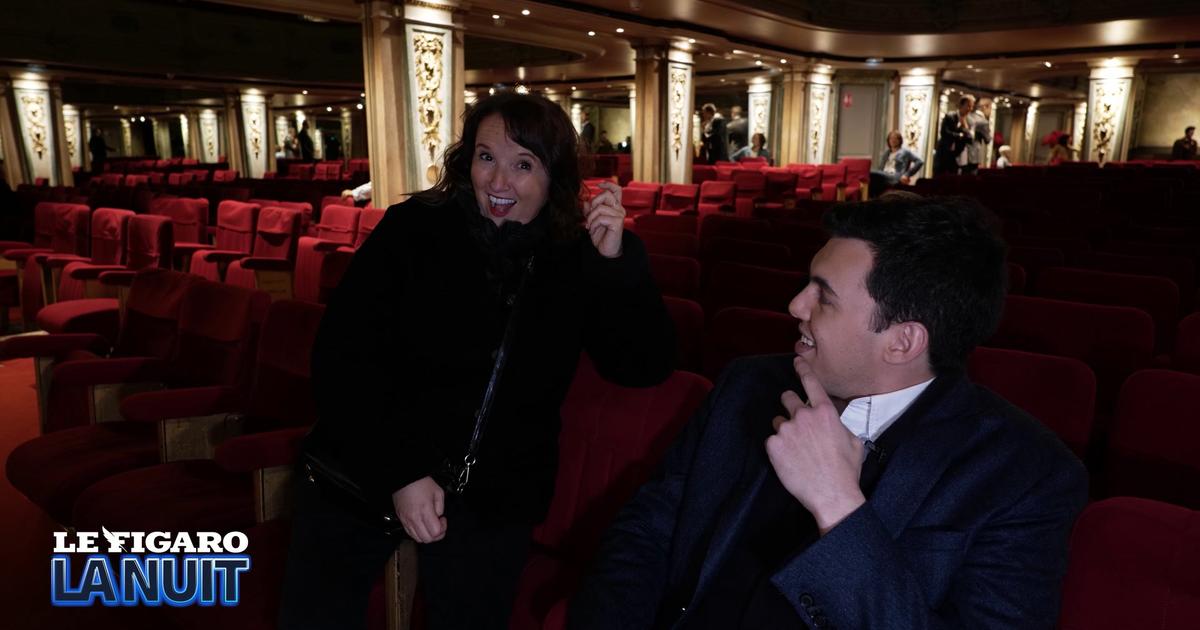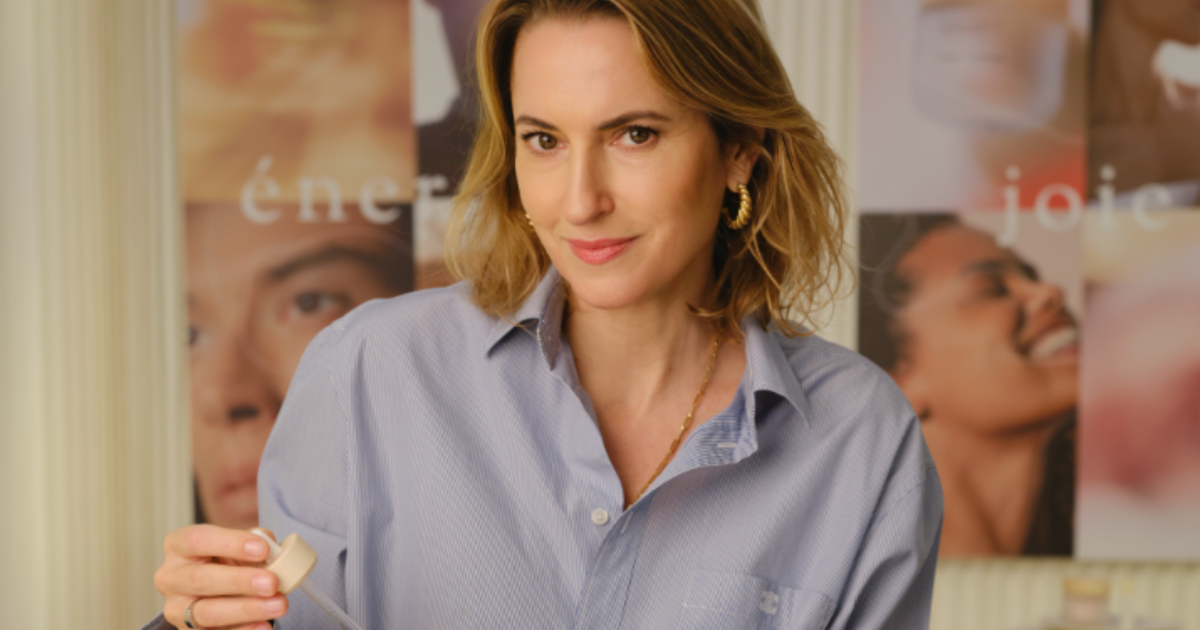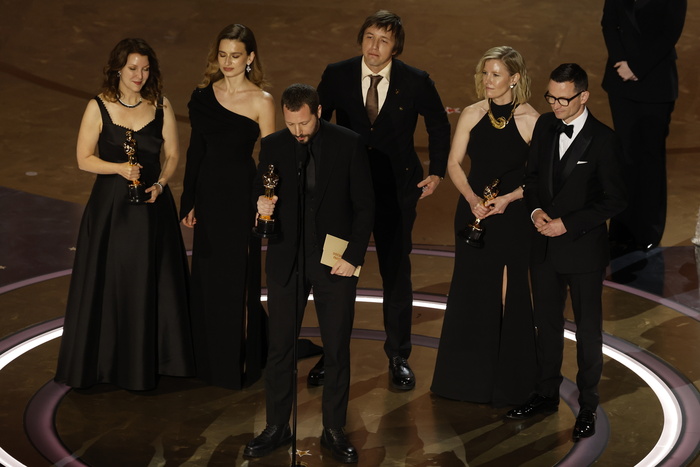She has grown up in and with her own novels: from teenager to college student; as a young man who publishes a poem to a consecrated author. Also from poor to rich. As a chronicler of our time, Irish Sally Rooney (County Mayo, 30 years old) explores misunderstanding. His novels analyze the fragility of love. Millions of readers and viewers -
normal
people became a television series - await the third novel,
Where are you, beautiful world
(Random House Mondadori / Periscopi), which is published on September 9. With an almost state-secret prevention, your British publisher announces that our conversation - via Zoom - will be disconnected after 45 minutes. On the other side of the screen, Rooney, sleepy, answers sitting on an unmade bed, dodging personal issues.
Question.
"It is impossible to have a love relationship in which you never cause pain and no one causes it."
Does she talk about herself?
Answer.
Letting a person enter your intimate life is taking that risk.
It does not matter if it is a romantic relationship or between parents and children.
You open the door to misunderstandings and pain when you get deeply close to another human being.
Maturing is understanding that love does not consist in always getting along, but in having the strength to solve problems that arise due to misunderstandings or insecurities.
Accepting intimacy is accepting the possibility that another person does not understand us and hurts us.
Obviously, I am not talking about abusive relationships, but I am interested in writing that our ability to meet other people is imperfect and limited.
P.
Without suffering there is no love?
A.
A deep, sincere and free relationship can hardly exist without some kind of conflict or discrepancy.
Pain is part of love.
Well assumed it makes it grow.
That is the nature of intimacy: it contains vulnerability, it implies the possibility of pain appearing.
That suffering should not question love.
The other way around: it tells us that it is more of a conquest than a lottery.
Q.
Does weakness unite and repel at the same time?
R.
Exactly.
One may fear disappointment by showing weakness, or one may fear the other's weakness.
We can protect ourselves against the strength, or admire it, but it is difficult for us to handle the weakness of others.
In my books, the protagonists seek to be vulnerable without having to suffer for it.
Q.
In your three novels, the greatest aspiration is to be loved unconditionally.
R. You are
right.
I talk about love between friends or between couples.
And in these two types of relationship there is the aspiration to unconditional love.
Not that I think we should aspire to that, but I am interested in investigating it.
Q.
Do you mean that you see it possible?
R.
It is a search with which I identify myself: wanting to be loved without conditions and getting to love without filters.
There are many types of fantasies and a very common one is wanting to be loved.
As I wish, it is one of the most interesting because it involves more than just getting what you want.
One can wish to be rich or to be successful.
But achieving something material is not interesting: it does not tell you anything about yourself and it does not involve any kind of learning.
While aspiring to be loved and getting loved is interesting because you end up learning a lot about yourself and the other person.
Q.
Isn't love unconditionality a romantic slab?
R.
It is a desire, but it contains the possibility of learning: one accumulates knowledge in the risks and decisions that one assumes in life.
Q.
Do you love or learn to love?
R.
You learn to love and love yourself.
It is an effort, not just a blessing.
I'm interested in what people want and what happens when they get it.
P.
Answered Prayers
, by Truman Capote.
A.
Exactly: not knowing what to do when you finally achieve what you were looking for.
Starting a relationship is opening the door to change and transformation.
Q.
So does romanticism end and learning begins?
R.
Knowing a person deeply is one of the greatest challenges in life because we are change.
It takes a lot of effort to get to know and know yourself thoroughly and often involves pain.
The main job is to look from another point of view, from other values, and not assume that ours are immutable.
"Characters who have relationships with both sexes achieve a more open and unpredictable link with power" Ximena and Sergio
Q.
It is the best seller of the millennials, but writes about eternal affairs.
R.
The protagonists of my last book wonder what we have to replace the old customs because they are disappearing without us having found substitutes for them.
I do not want to fall into nostalgia.
I do not defend the ways of living that dominated the 20th century, but my characters wonder how to live without models.
P.
Do we live an ideological orphan?
R.
We do not know what sustains us.
In the world we have left behind there was a sense of community.
Also a lot of repression, of course, but now we are without models.
And that happens in relationships too.
There used to be unwritten rules on how they thrived and that's falling apart.
Q.
Isn't the normalization of other ways of living a sign of open-mindedness?
R.
The lack of models generates ambivalence: one must decide for himself what is good, not by the tradition of a model.
Q.
What is changing everything?
R.
The immediacy, the great speed with which life has transformed in the last 15 years.
Q.
The more intense a relationship is, the more fragile it is?
R.
When we expect everything, everything can fail. And a failure can be experienced as a betrayal: I thought you understood me! Very deep connections are fragile because we demand more of them. When you feel that your relationship with a person is almost perfect, that by looking at you he knows what you are thinking, any interruption of that flow feels like a setback. We need to know that whoever understands us may not understand us at some point. To trust the perfect understanding is to condemn a relationship. Expectations in a superficial relationship are lower. We are more careful with whom we are not going to get along. It happens to the protagonist of my last novel with her sister: they don't get along. Terrible things are said. But they hold on because they don't wait any longer. It's irrational, but it works like this: we assume the hardest when we don't expect anything.
Q.
How do you make books about people who write interest people who don't write?
R.
Because life is more important than literature and, even if they write, they suffer or feel.
In the origin of the English novel, the plot was built around the intrigue of who the protagonist was going to marry.
That disappeared in the 20th century.
In part, of course, because the very idea of getting married has been falling apart in people's aspirations.
My novels are not about weddings, but they do revolve around romantic and erotic relationships.
And the intrigue is no longer if they will marry, but if they will get to be together.
That people saw their fears, failures and desires reflected popularized the novel in the 19th century, which today reinvents itself in other directions.
P.
Is the romantic novel of the XXI century painful?
R.
It is not very romantic.
Try to be more true than idealistic.
Q.
Have your friends read your books?
A.
Yes. Many yes.
Q. I
ask why the boyfriend of your last protagonist, a successful writer, does not read your books.
R.
It is a guy who does not read, like so many people in the 21st century.
Q.
A writer paired with a man who doesn't read?
A. It
can be even healthy.
There are other affinities.
Couples don't have to agree on everything.
Q.
Your father worked for the telephone company and your mother is in charge of the art center in your city.
Both have been socialists and, in general, one either opposes his parents or surpasses them.
Is it more of the left or has it become conservative?
R.
Possibly before it was more.
Q.
Is educating someone in a political ideology similar to raising them within a religion?
A.
Yes.
Q.
Is it manipulating it?
A. It
can be indoctrinating, but it can also be informing.
It was the case of my parents, who transmitted values to us, not just a political ideology.
They were socialists and Catholics.
We were going to mass.
But at the same time that the Christian creed told us that we are born equal, that we must have the same rights and everything that they consider to be non-negotiable in relationships of respect for others.
Q.
That is also Christianity.
R.
Exactly.
In my childhood I did not feel a distinction between what was religious and what was political because many values coincided.
Let's say my parents didn't force us to read the Bible or the Communist Manifesto.
They did not indoctrinate us, which is why one of their legacies has been the questioning of any rigid ideology.
We argued about everything.
The three brothers defended our point of view on any subject.
That means they made us think.
Q.
At Trinity College, you organized the debating club.
And there she met her husband.
A.
Both are true.
Q.
Do you debate a lot at home to make decisions?
A.
[Laughter] No. Sorry.
I'm not going to talk about anything personal.
P.
At that time I defended things like: private capital should be abolished.
Being rich, do you think the same?
A.
Sure it is.
It makes me happy that many people are interested in my books.
I try to write them as best I can and I like to get paid to do it.
What I do not understand is why I have to earn much more than people who do fundamental jobs for society, such as my husband, who is a mathematics teacher, or the professionals on the front lines of the pandemic: doctors, nurses, cleaners or delivery men .
It is impossible to imagine where we would be if everyone had stopped working and decided that they were going to be novelists.
It's not that I think I don't deserve to be rewarded for my work.
I wonder if I deserve to multiply the salary of others so much.
And I think not.
Q.
And what do you do about it?
R.
What can I do?
I take the money.
The least I can do is not change my mind simply because now I earn a lot.
I have spent times without money and now I earn much more than most people.
But my opinions are the same.
P.
Can you think the same having a lot as having little?
R.
It is a question of coherence.
Or decency.
I think everything should be more fairly distributed.
P.
Link the sense of possession of relationships to capitalism.
A.
We spend so much time working or shopping in that frame of mind that a relationship can be misunderstood as an investment.
We are so used to making the most of our time that non-commercial issues - such as affective, sentimental or sexual relationships - become infected and we can come to think of them as transactions even though that is not their nature.
Although the sense of possession is already in Greek literature, capitalist thought has intruded into areas of our existence that are supposedly outside the market.
Sally Rooney, who publishes her third novel, 'Where are you, beautiful world', photographed this summer.Ximena and Sergio
Q.
When did you stop going to mass?
R.
With 14 years.
After the election of Pope Benedict XVI.
His ideas did not allow me to see a good future for the Catholic Church.
If they had chosen Francisco my decision would have been different.
P.
In your three novels there are constants: difficulties to communicate;
presence - or absence - of an alcoholic parent;
bisexuality… Are you reflecting your life or your generation?
R.
I do not give credit to how much of me is in the books that I publish.
I don't mean to say they are autobiographical.
But, anyway, I only have one life.
So, of course, in what I write there must be themes that have made me think or feel.
But I must protect my privacy.
I'm not going to talk about her.
Q.
Can't you write about something you don't know?
A.
Not me.
Q.
Do you write about heterosexuality as rigidity?
A.
Being straight in a world where other options abound does not make you more rigid.
But I feel an inclination to write about beings for whom finding a mate is not defined, or limited, by a question of gender.
I'm interested in the link between gender and power.
And characters who have relationships with both sexes achieve a more open and unpredictable link with power.
P.
In your books there is also a lot of self-harm.
What makes us hurt?
A. It
can be a way of escaping from greater pain.
Is there also in the last novel?
P.
Little.
It seems to be leaving it behind.
"If you're thinking of doing something to hurt yourself, don't even try: you'll just make a scene and you won't feel better."
R.
It is true.
I am not aware, but I suppose I do it because I focus on moments of vital crisis.
It's not that I limit myself to deeply unstable personalities, it's that I look at normal people in difficult circumstances: a 21-year-old girl in a relationship with a married man, a teenage girl who has suffered abuse in her family, or a successful writer who He comes from recovering in a psychiatric institution.
Q.
What attracts you to those moments?
R.
The limit.
Self-injury is a dangerous tool because it works when it causes greater pain than is suffered and manages to distract the original pain.
It also occurs in very angry people who cannot figure out what makes them angry.
When these characters feel overwhelmed by sadness or disappointment, they are only able to direct their anger against themselves.
They prefer to hurt themselves than to hurt.
Not that I'm interested in self-harm for any personal matter.
I care because of the frequency with which it is related to the deepest crises.
Q.
What is the value of writing on taboo subjects if it is not done in the first person?
R.
There is no shortage of authors explaining what has happened to them.
I am interested in intellectual discussions not centered on people but on situations.
I write novels because I believe in the power of imagining stories.
I need the protagonists to have a life of their own beyond the one I have.
P.
Does maturing consist of demonstrating things or trying to understand them?
A.
The world makes us believe in our contradictions.
However, maturity comes with the acceptance of what there is and what you are.
It is not throwing in the towel or becoming cynical, it is accepting people and the world as they are.
Q.
Where are you then, beautiful world.
R.
We have a hard time finding it. The novel suggests that in the aesthetic experience that can come from art or nature there is a small window open to hope. Although you may have many doubts about the publishing industry, it allows you to find a book that can still change your life.









